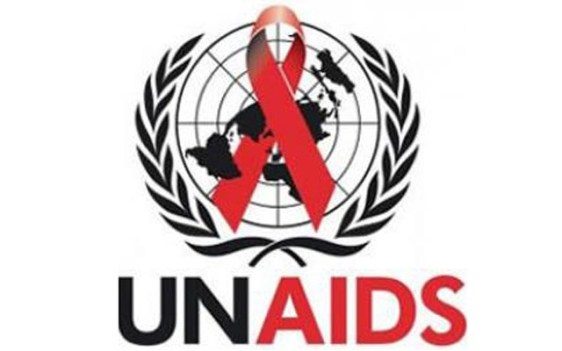HIV/AIDS mortality remains high worldwide, according to the UNAIDS Global Report 2019 released on Tuesday.
The content of the report, released in Eshowe, South Africa’s KwaZulu-Natal province, serves as a reminder to the international community that the fight against the pandemic is far from over.
The report said that 770,000 people died of HIV/AIDS worldwide in 2018. The figure shows only a 30,000 reduction from the 800,000 deaths recorded in 2017.
It said that 840,000 deaths were recorded in 2016.
According to UNAIDS, South Africa was nominated out of the 193 UN member states to host the official inauguration of the report in view of its remarkable and outstanding efforts in the fight against HIV/AIDS.
In 2016, the UN member states endorsed the goal of cutting HIV/AIDS deaths by 50 per cent by the year 2020, to less than 500,000 yearly.
Six months to this deadline the world is far from achieving this target, the report said.
The report added that the pace of progress in reducing new HIV infections, increasing access to treatment, and ending AIDS-related deaths was slowing down.
The report shows a mixed picture, with some countries making impressive gains while others are experiencing rises in new HIV infections and AIDS-related deaths.
Globally, around 1.7 million people became newly infected with HIV in 2018, a 16-per cent decline since 2010, driven mostly by steady progress across most of eastern and southern Africa, the report shows.
South Africa, for example, has made huge advances and has successfully reduced new HIV infections by more than 40 per cent and AIDS-related deaths by around 40 per cent since 2010, according to UNAIDS.
However, there is still a long way to go in eastern and southern Africa, the region most affected by HIV.
There have been worrying increases in new HIV infections in eastern Europe and central Asia (29 per cent), in the Middle East and North Africa (10 per cent) and in Latin America (seven per cent), the report says.
The report calls for greater urgency as global gains slow and countries show mixed results towards 2020 HIV reduction targets.
According to the report, key populations and their sexual partners now account for more than half (54 per cent) of new HIV infections globally.
In 2018, key populations – including people who inject drugs, gay men and other men, who have sex with men, transgender people, sex workers and prisoners – accounted for around 95 per cent of new HIV infections in eastern Europe, central Asia, the Middle East and North Africa.
However, the report also shows that less than 50 per cent of key populations were reached with combination HIV prevention services in more than half of the countries that reported.
The report said that the aforementioned indicated that key populations were still being marginalised and being left behind in the response to HIV.
“We urgently need increased political leadership to end AIDS.
“This starts with investing adequately and smartly and by looking at what’s making some countries so successful,” said Gunilla Carlsson, UNAIDS Executive Director.
According to Carlsson, ending AIDS is possible if focus is placed on people, not diseases, and roadmaps are created for the people and locations being left behind, and a human rights-based approach is taken to reach people most affected by HIV.
The report stressed the urgent need for countries and communities most affected by HIV to get the necessary resources and support to apply the lessons of community approaches of HIV testing and treatment.
The report urged the international community to ensure that 30 million people living with HIV had access to treatment through meeting the 90-90-90 target by 2020.
In 2014, the Joint United Nations Programme on HIV/AIDS (UNAIDS) and partners launched the 90–90–90 targets; the aim was to diagnose 90% of all HIV-positive persons, provide antiretroviral therapy (ART) for 90% of those diagnosed, and achieve viral suppression for 90% of those treated by 2020.
The 90-90-90 targets are an important indicator of the success of a country’s HIV response.
Xinhua/NAN











